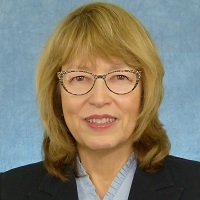UNC Health: Dementia-friendly care boosts quality, improves the patient experience

- UNC Health is training nearly 4,000 clinicians and staff to deliver “dementia friendly” care.
- Patients with dementia often have longer hospital stays, higher mortality, higher costs and higher readmission rates than other patients.
- Training involves computer-based educational modules, moderated discussions and role-playing.
The hospital can be a confusing and frightening place for patients with dementia. Among other concerns, hospitalized patients with dementia are more likely than other patients to develop additional complications during their stay. They can fall, develop pressure ulcers and become malnourished or even delirious.
From our experience, we know these complications often lead to longer hospital stays, a greater chance of readmission, poorer health outcomes, higher mortality rates and higher costs than for similar patients who do not have dementia.
Meanwhile, caring effectively for hospitalized patients with dementia is challenging for hospitals because few employees and clinicians have been trained to communicate with and care for patients whose sensory perception and brain function are profoundly altered.
To address such limitations, the Dementia Friendly Hospital Initiative was established as a partnership between the University of North Carolina’s Center for Aging and Health and the UNC Health system. The goals are to:
- Deliver dementia-friendly training to clinical and nonclinical staff
- Improve hospital quality and safety for patients and families
- Support timely, cost-effective and compassionate hospital care for older adults living with dementia
- Shorten patient stays and help avoid readmissions
An increasingly urgent situation
In North Carolina, 170,000 adults ages 65 and older have Alzheimer’s disease, a number that will rise to 210,000 by 2025 and 260,000 by 2037, according to projections from the Alzheimer’s Association. Alzheimer’s and other types of dementia are the fourth-leading cause of death in North Carolina residents older than 65.
North Carolina’s General Assembly passed a law in 2014 to establish a task force and strategic plan to better support the needs of the state’s aging population. The strategic plan included a recommendation that hospitals train their staff to treat patients with dementia.
The Center for Aging and Health launched the Dementia Friendly Hospital Initiative with funding from the Duke Endowment, aiming to train approximately 4,000 employees in five UNC Health hospitals and to improve care for the nearly 5,500 hospital patients per year who are ages 65 and older and have dementia.
Key aspects of dementia-friendly care training
We piloted the program at UNC Hospitals Hillsborough Campus in 2019 and are expanding it across four other hospitals. As part of the Dementia Friendly Hospital Initiative, all staff who interact with patients — from physicians and advanced practice providers to food service workers, security officers, administrators and others — are trained to better understand the needs of patients with dementia.
The first phase of training is computer-based. After staff and clinicians complete the computer modules, they participate in moderated discussions and role-playing exercises that explore potential scenarios involving patients with dementia. Staff are trained, for example, not to contradict or argue with patients who have dementia and to recognize that interactions may need to go more slowly than with other patients.
We are tracking data on length of stay and readmissions so that, over time, we can evaluate the effectiveness of the program and optimize training. In the meantime, we are encouraged by the enthusiasm among our five hospital partners, and we look forward to continuing to expand this much-needed program.
Unfortunately, there is no cure for dementia on the immediate horizon. What we can do today is provide the best possible care.





